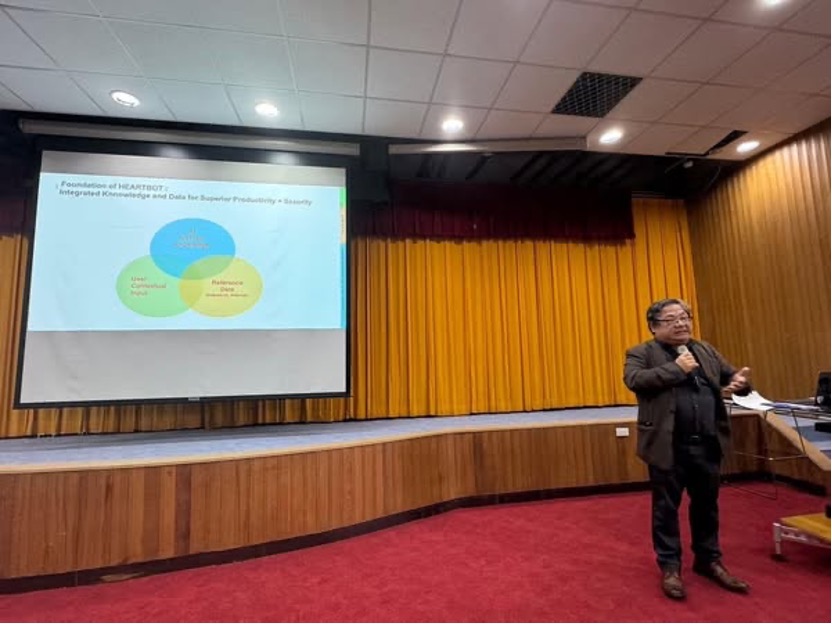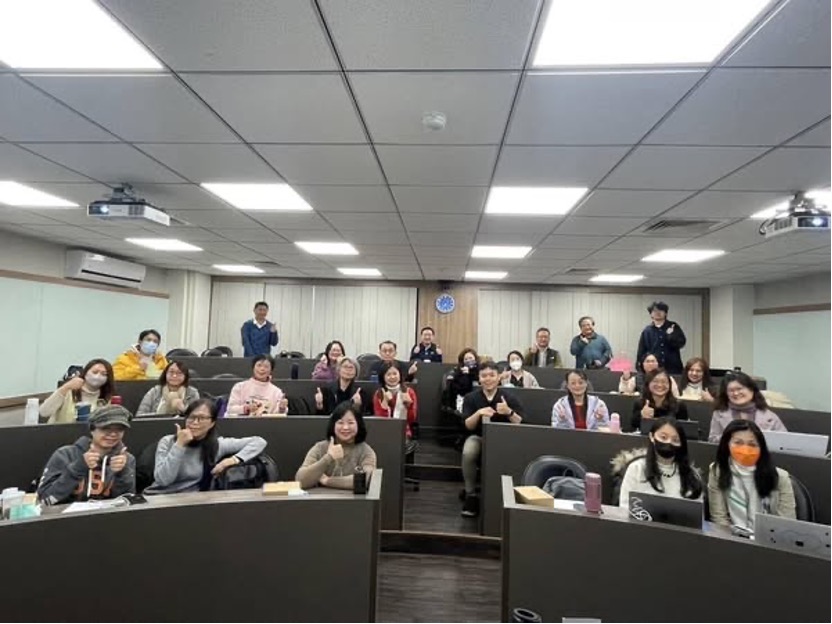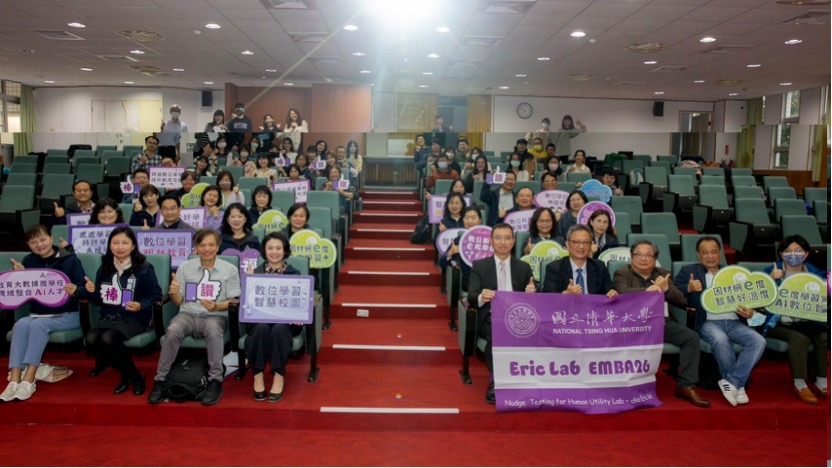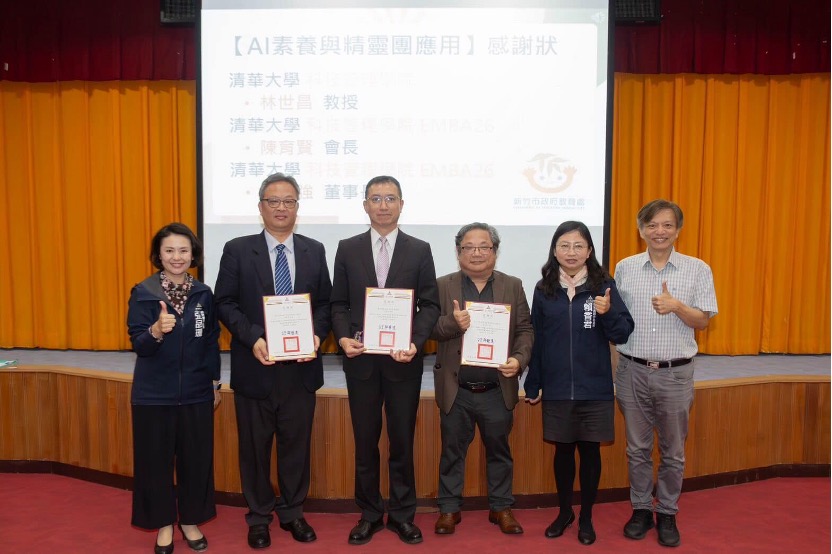Hsinchu Digital Education Symposium Showcases Innovative Teaching Achievements and New Perspectives on AI Applications
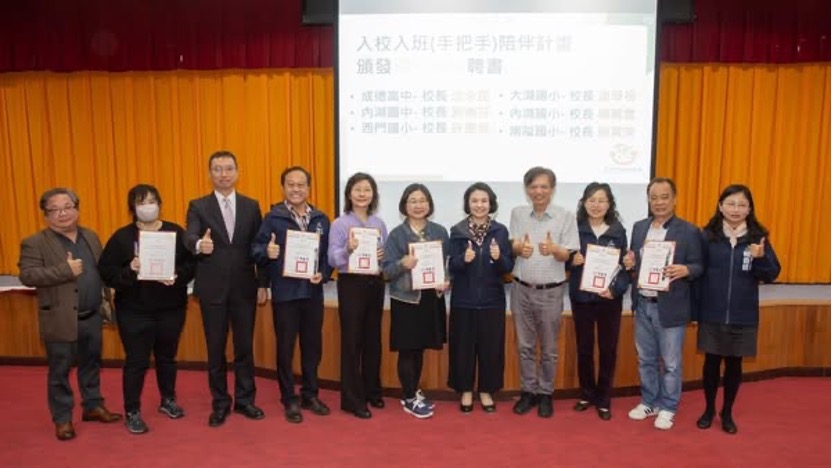
On March 4, the Hsinchu City Government held the “Digital Learning Advancement Symposium” to explore how digital technology and AI can enhance students’ learning outcomes. The event featured a presentation by Dr. Liu Yuan-jen, Vice President of National Taipei University of Education, on the Ministry of Education’s blueprint for the future of digital education. The symposium also included award-winning lesson plan showcases and a keynote speech by Professor Lin Shih-chang from National Tsing Hua University titled “AI and the Smart Campus of the New Generation.”
During the event, the city announced an expanded collaboration with National Tsing Hua University’s Light Experimentation and Human Well-being Lab to leverage AI technology and data analytics for improving student learning efficiency and achieving true educational equity. Additionally, Deputy Director of Education Chang Pin-shan presented awards to schools recognized for their outstanding contributions to digital education, including certificates for international learning partners, digital bilingual learning partners, 5G technology learning demonstration schools, and 5G smart learning schools.
Acting Mayor Chiu Chen-yuan emphasized that the city government continues to build on the “Hsinchu for Learning” policy initiated by Mayor Ann Kao, empowering education through technology to create smart learning environments. The city’s “Smart Hsinchu, Digital Transformation” initiative highlights how digital technology and AI can enhance learning outcomes and bridge the urban-rural education gap.
Director of Education Lin Li-sheng stated that digital education is the future, and the city will continue to advance digital education policies, optimize smart learning environments, and actively collaborate with academic institutions and industry to introduce the latest AI technologies and digital learning tools, benefiting both teachers and students.
Innovative Teaching Practices and Digital Transformation
Acting Mayor Chiu noted that the symposium aimed to improve digital learning outcomes and foster teaching innovation. Award-winning educators shared their exceptional teaching designs and practical experiences. Presentations included innovative digital teaching practices by Liu Li-chuan, Director of Academic Affairs at Nanliao Elementary School; Su Han-che, a teacher at Yuxian Junior High School; and Hsueh Yung-hao, IT Director at Beimen Elementary School. These educators demonstrated how integrating digital tools and teaching strategies can enhance student learning outcomes, inspiring more teachers to embrace innovative teaching practices and drive digital transformation in education.
Deputy Director Chang Pin-shan highlighted that the “Hsinchu for Learning” policy has opened a new chapter in digital education and encouraged school principals to actively participate in promoting smart education. She emphasized the importance of regular evaluations and outcome-sharing mechanisms to ensure the effectiveness of digital learning. Chang also urged schools to continue innovating digital teaching models, leveraging digital technology and AI tools to boost student motivation and achievement, ultimately achieving the goal of “AI for the New Generation, Smart Campuses.”
AI and Evidence-Based Education
Professor Lin Shih-chang, Executive Director of the EMBA program at National Tsing Hua University’s College of Technology Management, delivered a keynote speech titled “From Educational Evidence and Causal Inference to AI GenieBench.” Lin discussed the importance of effective resource allocation from the perspectives of public and educational policy, emphasizing evidence-based decision-making. He shared examples of empirical education research spanning various educational levels, from elementary school to postdoctoral studies, covering topics such as gender differences in the relationship between BMI and academic performance, optimal timing for tutoring, the effectiveness of substitute teachers in secondary schools, and academic performance among new immigrant children in elementary schools. These examples illustrated the potential causal relationships of different education policies through an evidence-based lens.
AI-Powered Personalized Learning
The Department of Education noted that the city’s collaboration with National Tsing Hua University’s Light Experimentation and Human Well-being Lab aligns with the memorandum of understanding signed on February 7. The partnership aims to use AI and big data technologies to create personalized learning solutions. Ximen Elementary School will serve as the first pilot school, with plans to expand to more schools in the future. By leveraging AI-driven analysis of students’ learning progress, the initiative will provide tailored learning recommendations to enhance learning efficiency.
Yu-hsien Chen, Chairman of Minco System Technology Co., Ltd., remarked that as a hub of technological innovation, Hsinchu aims to ensure that technology serves society, particularly in education. He expressed hope for creating a more equitable and competitive learning environment for Hsinchu’s children.
Nathan Yen, founder of HEARTBOT AI Inc., actively promotes the development and educational training of “AI GenieBench.” By introducing enterprise-grade data management technologies into education, Yen ensures that AI can genuinely support student learning.
The Hsinchu City Government reaffirmed its commitment to advancing smart learning initiatives through collaboration among industry, government, and academia. The goal is to create a more equitable and competitive educational environment, enabling every child to thrive in the digital era and embrace a brighter, innovative future. Hsinchu’s children will become the world’s children!
